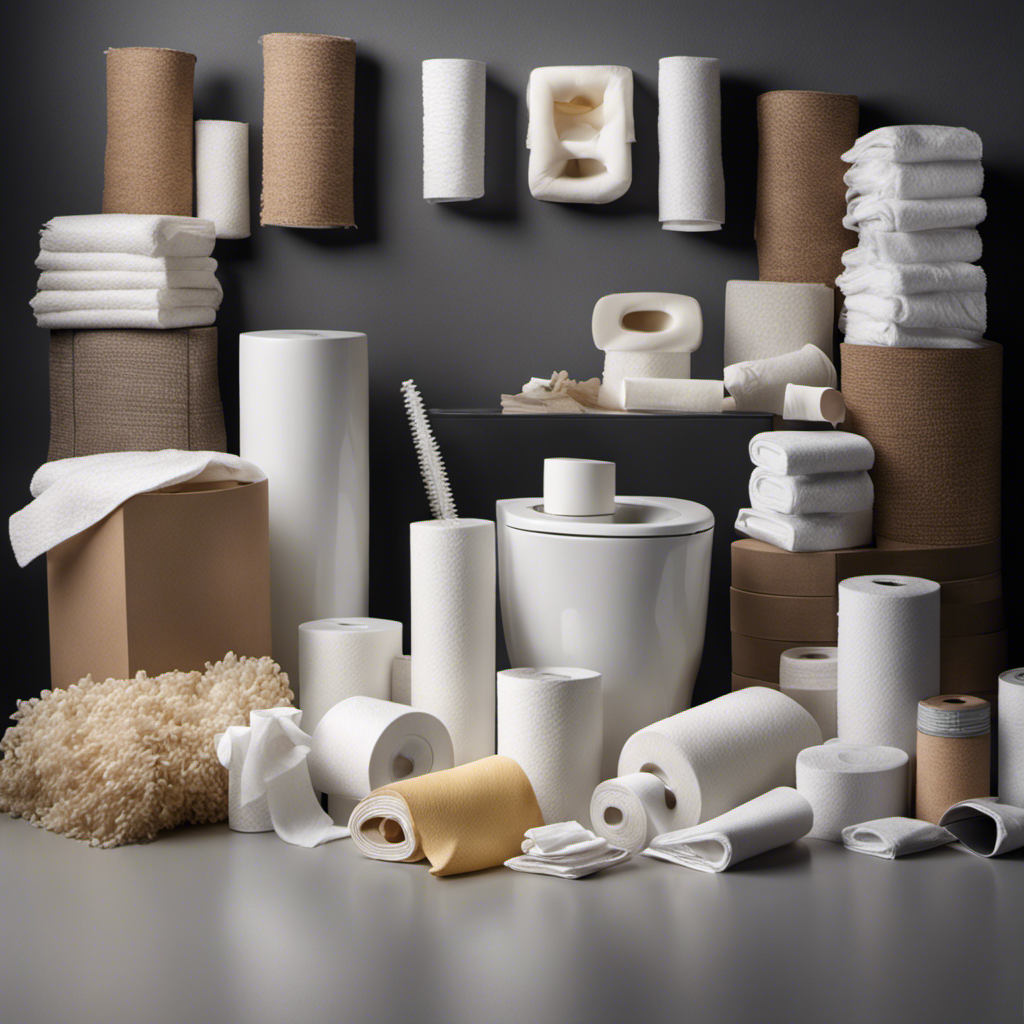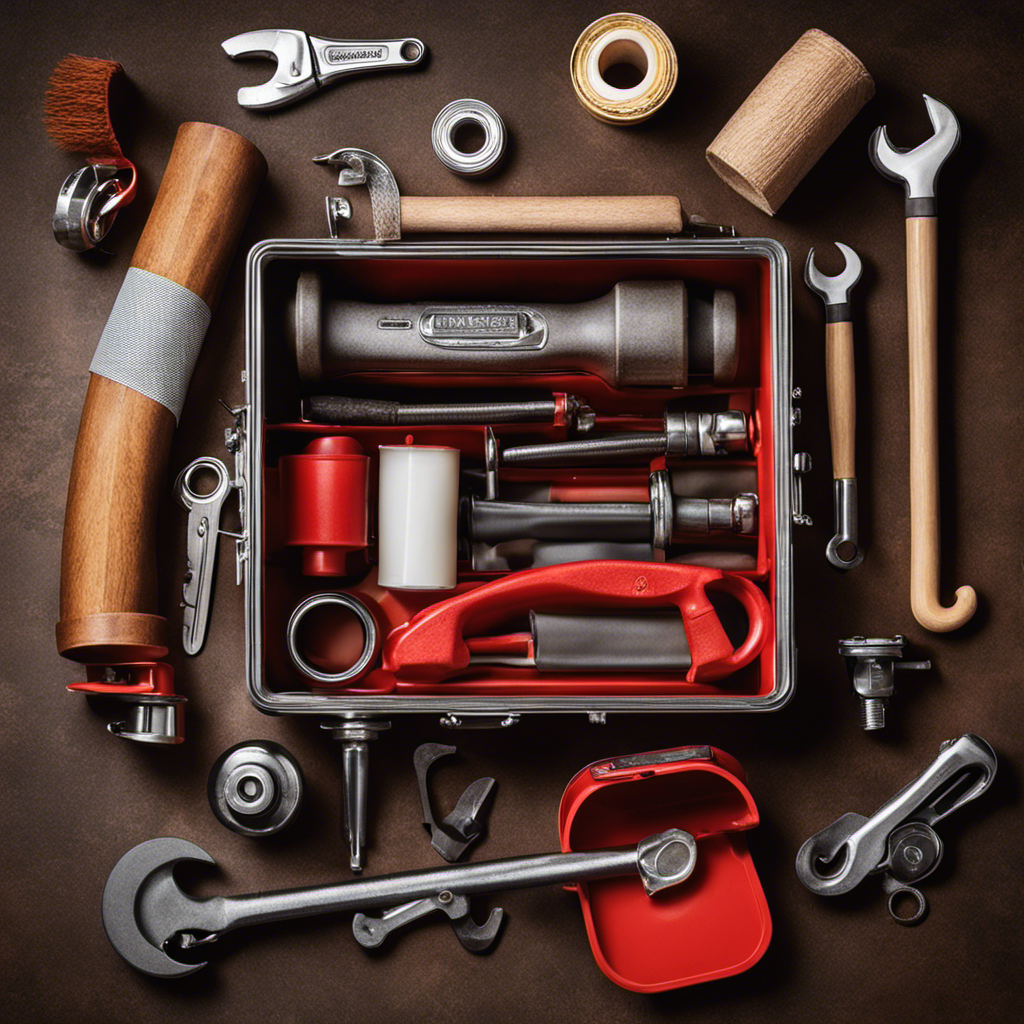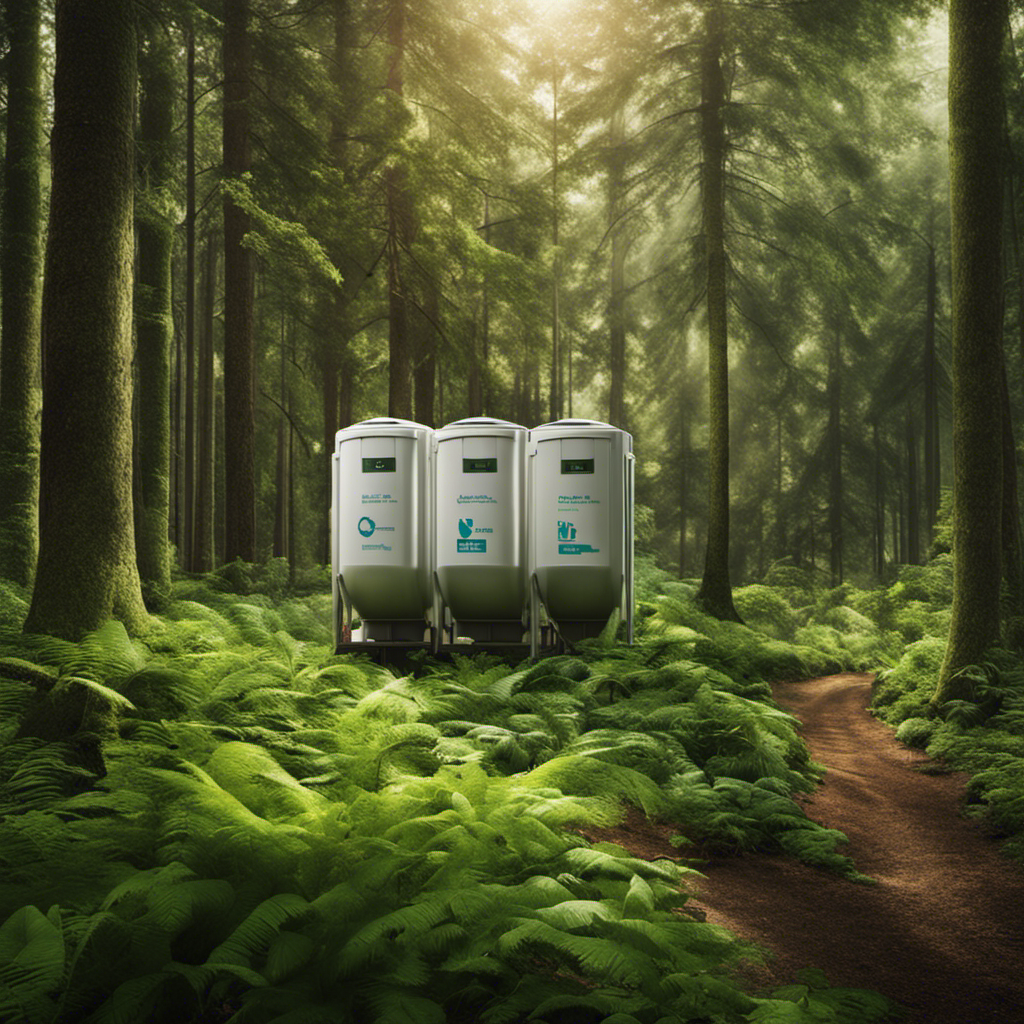So you’ve been facing the frustrating issue of toilet clogs, huh? Trust me, I’ve been there too.
But fear not, because I’ve got the solution you’ve been searching for. In this article, I’ll reveal the secrets to keeping your toilet free from those dreaded blockages.
We’ll explore the importance of regular maintenance, natural DIY remedies, effective chemical products, and best practices for flushing.
No more plungers and headaches – it’s time to take control of your toilet and wave goodbye to clogs!
Key Takeaways
- Regular maintenance and DIY techniques are important to prevent clogs and blockages in toilets.
- Natural DIY solutions such as vinegar and baking soda, hot water and dish soap, and Epsom salt can help keep toilets from clogging.
- Chemical products like toilet bowl cleaners and drain cleaners can be used for prevention, but should be used sparingly and with caution.
- Following best practices for flushing, such as only flushing toilet paper and human waste, can help avoid plumbing problems.
Importance of Regular Maintenance
Regular maintenance is important to prevent clogs in your toilet. By performing regular maintenance on your toilet, you can ensure that it functions properly and avoid any potential clogs or blockages.
The frequency of maintenance will depend on the usage of your toilet. For a household with multiple occupants, it is recommended to perform maintenance at least once every three months. However, if you notice any signs of a potential clog, such as slow draining or water backup, it is important to address it immediately.
There are several DIY maintenance techniques that you can utilize to prevent clogs. These include using a plunger to remove any minor blockages, regularly cleaning the toilet bowl and drain pipes, and avoiding flushing items such as wipes, paper towels, or feminine hygiene products that can cause clogs.
Natural DIY Solutions
Instead of using regular store-bought products, you can try a natural DIY solution to prevent your toilet from clogging. There are several eco-friendly alternatives using common household items that can effectively keep your toilet running smoothly. Here is a table showcasing some of these solutions:
| Natural DIY Solution | Household Item | Usage |
|---|---|---|
| Vinegar and Baking Soda | Vinegar | Pour 1 cup of vinegar followed by 1 cup of baking soda into the toilet bowl. Let it sit for 10 minutes and then flush. |
| Hot Water and Dish Soap | Dish Soap | Add a few drops of dish soap to a bucket of hot water. Pour the mixture into the toilet and let it sit for 15 minutes before flushing. |
| Epsom Salt | Epsom Salt | Add 1 cup of Epsom salt to the toilet bowl. Let it sit for 30 minutes and then flush. |
| Plunger | Plunger | Use a plunger to dislodge any clogs by creating suction and pressure. |
These natural DIY solutions are not only effective in preventing toilet clogs but also environmentally friendly alternatives to chemical-based products. By using household items, you can keep your toilet clog-free while reducing your carbon footprint.
Chemical Products for Prevention
Using chemical products can be an effective way to prevent clogs in your toilet. Toilet bowl cleaners and drain cleaners are specifically designed to break down and dissolve any build-up or debris that may be causing the clog. These products contain strong chemicals that can effectively remove stubborn stains, kill bacteria, and eliminate foul odors.
When choosing a toilet bowl cleaner or drain cleaner, make sure to read the instructions carefully and choose a product that is compatible with your plumbing system. It is important to use these products sparingly and only when necessary, as excessive use can lead to damage to your pipes or septic system. Additionally, always follow the instructions on the label and take necessary safety precautions, such as wearing gloves and ensuring proper ventilation.
By using these chemical products responsibly, you can help prevent clogs and maintain a clean and functioning toilet.
To ensure the best practices for flushing, it is important to follow a few simple guidelines.
Best Practices for Flushing
To ensure proper flushing, you should remember to only flush toilet paper and human waste down the toilet. This is the best practice for unclogging and avoiding common mistakes that can lead to plumbing problems.
Flushing anything other than toilet paper and waste can result in clogs and blockages in your pipes. Items like hygiene products, paper towels, and even baby wipes should never be flushed as they do not break down like toilet paper does.
Additionally, pouring grease or oil down the toilet can also lead to clogs as it solidifies and sticks to the pipes.
Professional Plumbing Services
Hiring a professional plumber can save you time and ensure that your plumbing issues are properly addressed. Here are four reasons why you should consider hiring a plumber:
-
Expertise: Plumbers undergo extensive training and have the knowledge and skills necessary to tackle any plumbing problem. They can quickly identify the root cause of the issue and provide effective solutions.
-
Quality Workmanship: Professional plumbers have access to the latest tools and equipment, allowing them to deliver high-quality work. They can fix your plumbing problems correctly the first time, saving you from future headaches.
-
Emergency Plumbing Services: Plumbing emergencies can happen at any time, day or night. Hiring a professional plumber means having access to emergency services, ensuring that your plumbing issues are promptly addressed, preventing further damage to your home.
-
Peace of Mind: By hiring a plumber, you can have peace of mind knowing that your plumbing system is in capable hands. They will handle all the necessary repairs and maintenance, allowing you to focus on other important aspects of your life.
Frequently Asked Questions
How Often Should I Schedule Professional Plumbing Services for My Toilet to Prevent Clogging?
I schedule professional plumbing services for my toilet every year to prevent clogging. It’s important to maintain regular maintenance to avoid issues. Additionally, I use home remedies like baking soda and vinegar to unclog without a plunger.
Are There Any Natural DIY Solutions That Can Help Unclog a Severely Clogged Toilet?
To unclog a severely clogged toilet, there are natural DIY solutions you can try. Some options include using a plunger, a mixture of baking soda and vinegar, or a toilet auger.
Can Using Chemical Products for Prevention Damage the Plumbing System in the Long Run?
Using chemical products to prevent toilet clogs has pros and cons. While they may temporarily unclog the toilet, they can also damage the plumbing system in the long run. Maintaining a healthy plumbing system without chemicals can be achieved through regular maintenance and proper usage.
What Are Some Common Mistakes People Make When Flushing That Can Lead to Toilet Clogs?
When it comes to flushing, there are some common mistakes we make that can lead to nasty toilet clogs. But fear not! I’ll share tips on how to prevent them and keep your toilet flowing smoothly.
Is It Necessary to Hire a Professional Plumber if I Am Experiencing Frequent Toilet Clogs?
Hiring a professional plumber may not always be necessary for frequent toilet clogs. First, try using a plunger to clear the blockage. If that doesn’t work, troubleshoot and fix minor clogs at home with a toilet auger or a drain snake.
Conclusion
In conclusion, regular maintenance and proactive measures are key to preventing toilet clogs. By using natural DIY solutions such as a mixture of baking soda and vinegar or opting for chemical products specifically designed for prevention, you can ensure the smooth functioning of your toilet.
Remember to follow best practices for flushing, avoiding excessive toilet paper or foreign objects. If all else fails, don’t hesitate to seek professional plumbing services.
For instance, my neighbor, Sarah, had been experiencing frequent toilet clogs until she started using a natural enzyme-based cleaner, which significantly reduced the occurrence of clogs.









